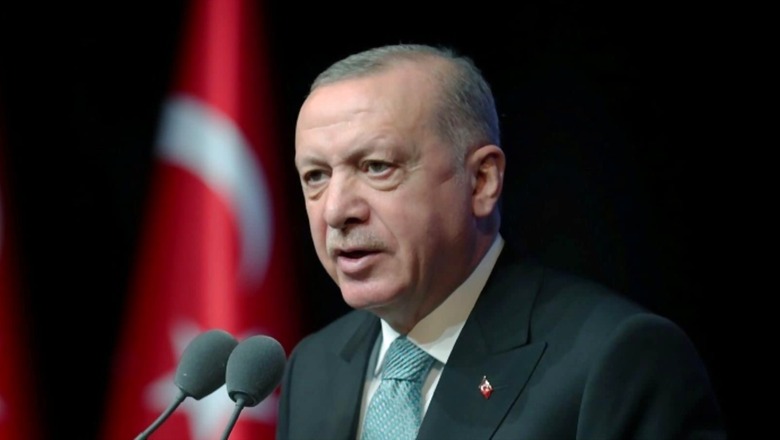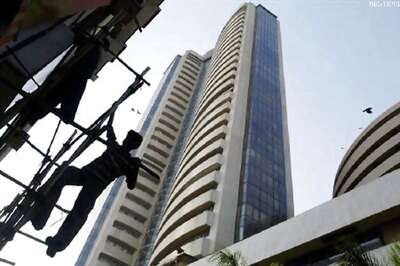
views
Turkey joined Mali and Jordan as the new entrants into the grey list of the Financial Action Task Force (FATF), the global money laundering and terrorist financing watchdog. The statement released by FATF Secretariat, based out of Paris, France, highlighted eight points of deficiencies including targeting money laundering, non-adherence to UN sanction regimes, discrepancies in abuse of terror financing by non-government organisations, and so on. Turkey now joins its close ally Pakistan in FATF’s crosshairs.
Turkey’s President Recep Tayyip Erdogan has envisaged the country’s place at the crossroads of the Middle East and Europe as a centre for both, economic and political power. Some analysts have crowned this vision of Erdogan as ‘neo-Ottomanism’, a quest of a modern Turkey to relive the glory days of the erstwhile Ottoman empire, which was founded by the Turkoman tribal leader Osman I and crumbled by the end of World War I after 600 years of projecting power. Today, Turkey looks to use a mixture of economics, political Islam, and hard power to achieve its over-arching geopolitical goals.
The FATF listing for Ankara comes on the back of a precarious economy being shunted by the Covid-19 pandemic, and being weakened further by a ‘punch-above-the-weight’ foreign policy where Erdogan wishes to expand Turkish economic, political, and military influence into the regions where the Ottoman empire once thrived, using this history, oddly, to offer itself as an alternative partner to post-colonial players from the West. However, the Turkish economy over the years has faced severe challenges led by economic overheating, a currency crisis, shaky morale of foreign investors, and lack of transparency and autonomy.
A few hours before the FATF announcement, the Turkish central bank slashed interest rates by 200 basis points, plunging the Turkish Lira down even further as Ankara tries to manage its economic fallout. In September 2021, rate cuts orchestrated by the central bank added further tensions over the country’s economy, which were then exacerbated even more with further rate cuts this month, as the government battled with soaring inflation. The economy during the pandemic has seen upward swings as well, but it being erratic, both from the perspective of policy and polity, has spooked international and domestic investors alike. The Turkish central bank itself is being seen as an example of the tussles between Turkey’s economic autonomy, specifically when it comes to markets, and Erdogan’s more-than-often overreaching powers in trying to micro-manage from the top down. The central bank itself has seen three governors being changed along with four statistical institute chiefs since 2019. Turkey’s current Central Bank Chief, Sahap Kavcigolu, who took charge in March 2021, is now reportedly also facing the President’s ire.
Despite economic tremors faced by Turkey, arguably it is its foreign policy that is at centre stage regarding the FATF listing. Under Erdogan, Turkey has embarked on an expansive quest to market itself as a global Islamic power, and a regional superpower in the Middle East. To achieve this, Ankara has ended up opening multiple crisis fronts instead of wholesomely managing regional geopolitics in a realistic manner. While attempting to position itself as a parallel to the UAE-Saudi power block in the Middle East, with Sunni Islam at the core of this engine, Ankara has also soured its relations with the US despite being a NATO ally while also developing multiple points of friction with Russia over the crisis in Syria. On the other geographic front, Turkey also had run-ins with Greece and the extended European interests over access to hydrocarbons in the Mediterranean. Athens and Ankara came to loggerheads late in 2020 as Erdogan remained adamant on dispatching drilling ships in the eastern Mediterranean despite Pan-European calls to not aggravate the situation.
Furthermore, Turkey has placed itself as a major player, and more than often a disruptor, when it comes to other global and regional tactical flashpoints. The relative success of its Bayraktar TB2 armed drone system has become the latest driver for Erdogan to spread Turkey’s strategic interests even further. The drone, for example, was highlighted significantly during the Nagorno-Karabakh war in 2020 between Armenia and Azerbaijan. The Azeris used Turkish Bayraktar TB2 drones to great effect, giving the drone and Turkish defence industry a podium for global marketability of not only Turkish technology, but Erdogan’s vision of both a solidified international position for Turkey. This offered a much more strengthened political position domestically for the Turkish President amongst the nationalists. This political design had started in 2015, after the ruling AKP lost political prowess for the first time in 10 years. The Erdogan-led alliance stepped in, and later strengthened further after the failed attempted coup against Erdogan in 2016 and the ensuing dismantling of many of the country’s liberal and democratic institutions, piggybacking on the fractious issue of Kurdish nationalism and the long-running conflict between Turkey and the Kurdistan Workers’ Party (PKK), which has been designated as a terror group by the US since 1997.
While Turkey’s foreign policy overtures are visible today from Libya to Kashmir, the economy does not hold strong on long-term funding of such ambitions. As of 2020, annual Turkish defence budget stood at just over US $17 billion, falling by 5 percent from the 2019 allocations. While the fall is indicative of significant challenges, overall, in comparison, Turkey had an increase in defence spending of 77 percent between 2010 and 2020. Ankara has tried to mitigate its ambitions and costs, now often looking at “private military contractors” to represent its interests instead of expensive, large-scale foreign deployments of its military. The ‘mercenaries’ model’ is a play straight out of the Moscow playbook, perfected by President Vladimir Putin, who also has had to manage Russia’s limited economic resources, boundless foreign policy interests, a historically heavy ideological battle with the West, and more than often aspirations that do not coincide with Russia’s bank balance.
Finally, how Turkey reacts to the FATF listing, and manages its bilateral relations with the West, and multilateral duties as a responsible state in the global order will determine Erdogan’s penchant for affording to run multiple geopolitical friction points while maintaining economic and political steam at home.
Erdogan may want to be a ‘neo-Putin’ more than a ‘neo-Ottoman’; however, it remains to be seen whether Turkey’s aspirations as a state coincide with Erdogan’s own aspirations, and at times even obsession, of power.
The article was first published in ORF
(The views expressed in this article are those of the author and do not represent the stand of this publication.)
Read all the Latest News , Breaking News and IPL 2022 Live Updates here.


















Comments
0 comment